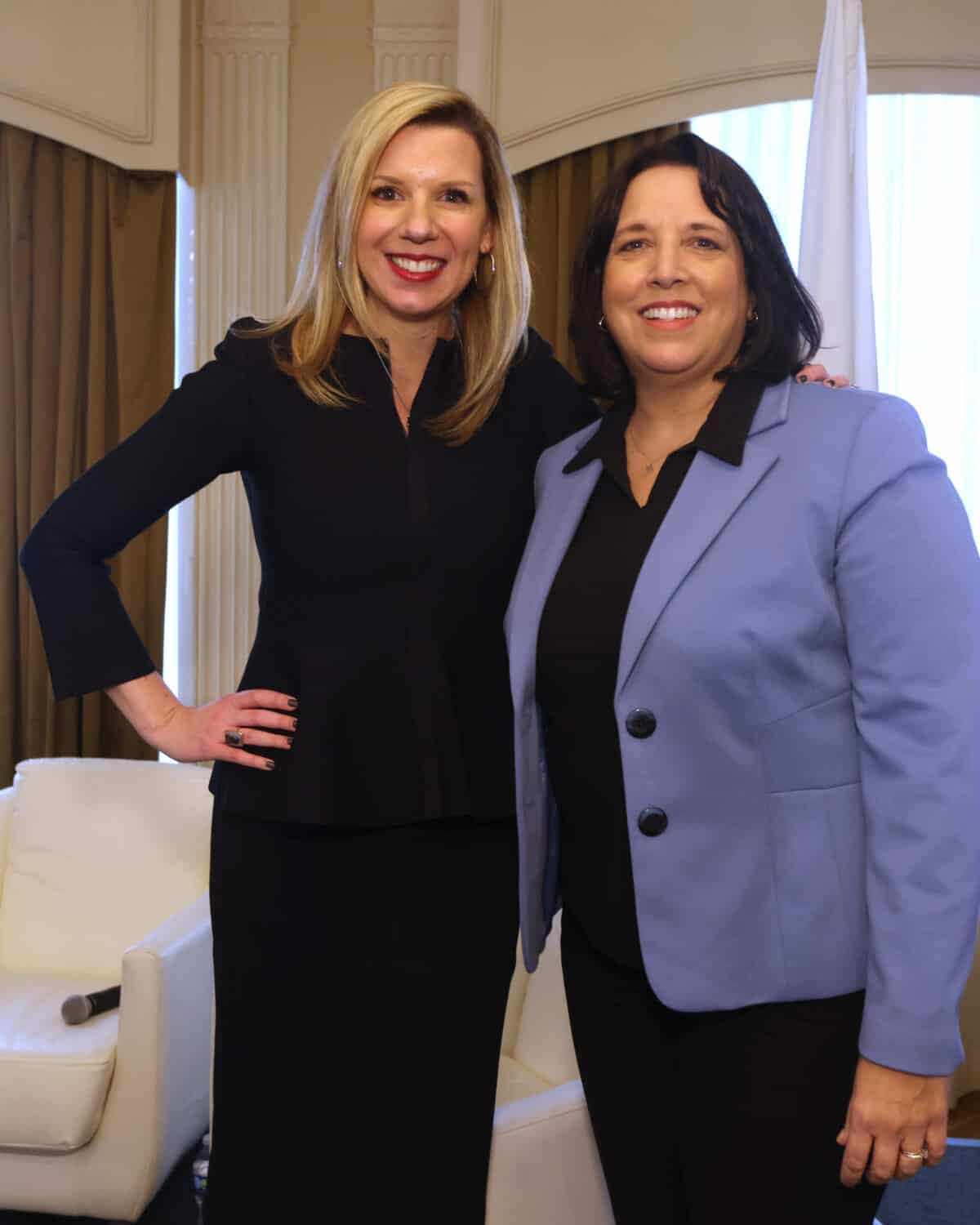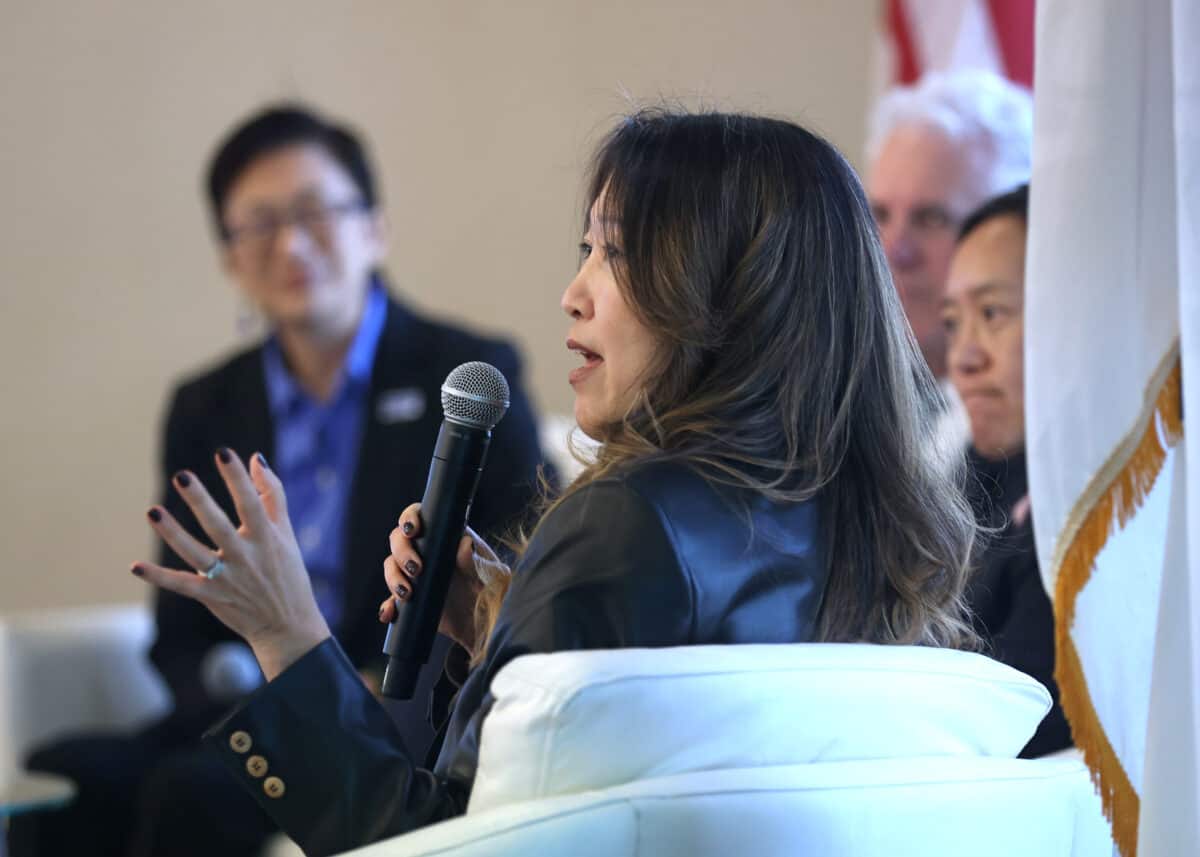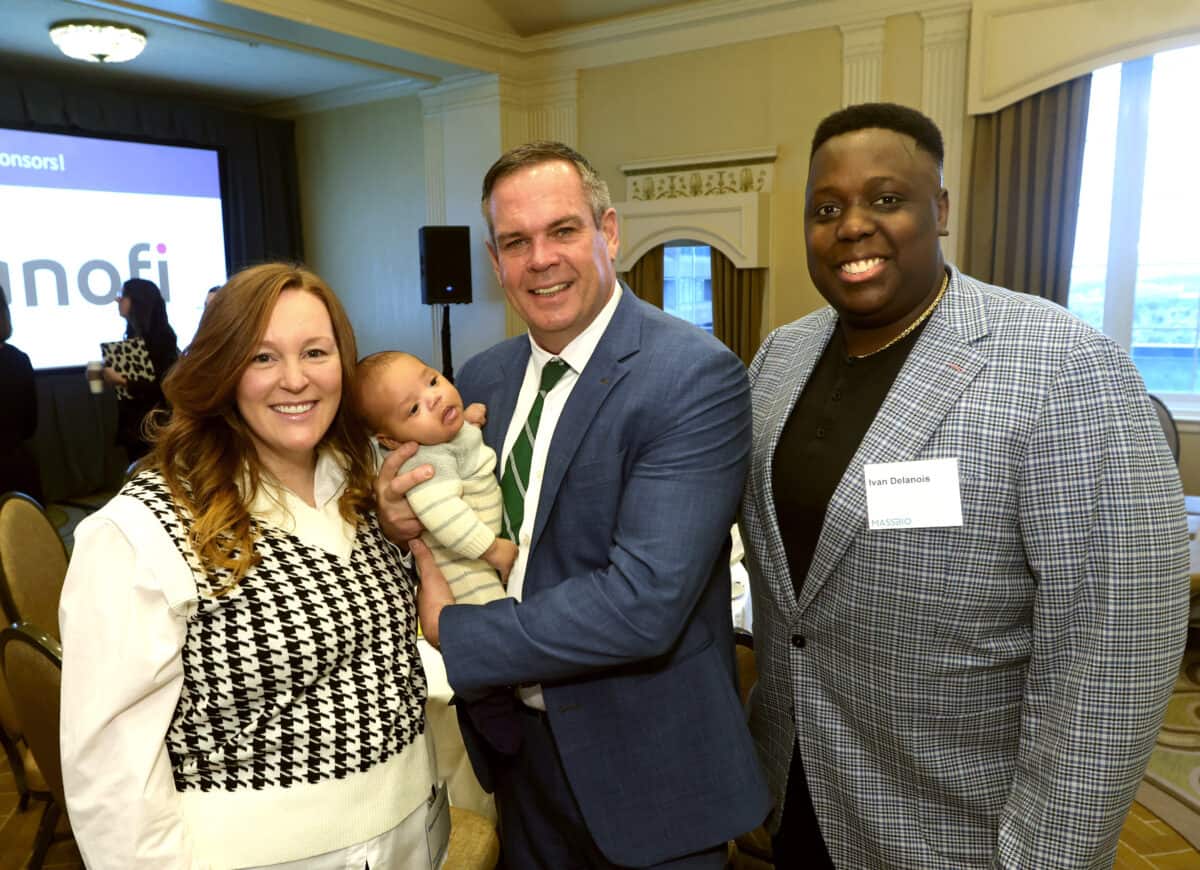Partnerships and patients were front and center at MassBio’s Policy Leadership Breakfast at the Omni Parker House, with Massachusetts Lieutenant Governor Kim Driscoll and healthcare leaders from across the state touting the key ingredients that have helped make the state an example to be emulated and signaling the important steps needed to maintain its lead in life sciences.
“Collaboration has remained a constant in Massachusetts and patients have benefited,” said MassBio CEO and President Kendalle Burlin O’Connell in her opening remarks to a packed house last week. “Today, there are more opportunities than ever to lengthen our lead, push the limits of patient-driven drug discovery, make meaningful progress on health equity, and change the lives of patients around the world.”
During her keynote address, Driscoll built on that message, emphasizing the Healey Administration’s accomplishments, which include landing the federal government’s ARPA-H Investor Catalyst Hub in Massachusetts. She also voiced support for a new life sciences investment bill – commonly referred to as Life Sciences 3.0 – as part of the governor’s economic development plan, a welcome message to the hundreds assembled.

The bill would provide essential resources to Massachusetts’ life sciences ecosystem, allowing Massachusetts to remain the global epicenter of life sciences innovation, workforce, and healthier patient outcomes. After the first two iterations brought 18 of the top 20 global pharma companies to Massachusetts, funded vital infrastructure projects, and supported early-stage innovation; we now have an opportunity to invest in what is next. Expanded biomanufacturing ensures that what is researched in Massachusetts can be made here. We can create jobs in new regions for new residents while enabling cutting-edge innovation for patient populations that have for too long not had treatments.
Massachusetts Gov. Maura Healey affirmed her intention to reauthorize the initiative last summer during her appearance at the BIO International Convention in Boston. The current bill, signed by former Gov. Charlie Baker in 2018, is funded through June 2025.
“I’m going to say it one more time for the people in the back of the room: we’re going to reauthorize our Life Sciences Initiative,” Driscoll said, to smiles and applause from the room. “And we want to build on that past success when it comes to advancing innovation, health equity, and affordability.”
High-profile partnerships like ARPA-H were among the topics discussed by the morning’s panel, which included Massachusetts Secretary of Economic Development Yvonne Hao, UMass Lowell Chancellor Julie Chen, Mass General Brigham Chief Innovation Officer Christopher Coburn and Takeda U.S. Business Unit President and Country Head Julie Kim.
Hao recalled a conversation with Healey last spring after learning about the requirements for states to apply to host an ARPA-H hub.
“I saw the governor the next day and I said, ‘We have a choice,’” said Hao. “We could decide to not compete because it’s going to be a lot of work and a lot of resources and there’s a risk we could compete and not win and that would be embarrassing. Or we can decide to compete. But if we’re going to compete, I want to go all in and I want to make sure we really, really leave nothing on the field and we try to win this thing. And [Healey] was like, ‘Is this even a question? Of course we’re going to go try to win this thing.’”
Coburn spoke of the collaborative spirit from life sciences leaders and government officials that he felt impressed the ARPA-H team. The first two speakers to address the federal officials were a Harvard-appointed clinician and a community organizer.

“They knew to expect half of that, but the other half they didn’t,” Coburn said. “That’s really at least to me an expression of an evolving approach here in Massachusetts.”
Kim discussed the state’s competitive spirit and companies’ ability to collaborate as a reason initiatives like ARPA-H can achieve their lofty goals in Massachusetts.
“On a day-to-day basis we compete very fiercely with each other but something like APRA-H illustrated the fact that innovation, that new idea, it can come from anywhere,” Kim said. “Sometimes it might come out of an academic lab, it might come out of a startup, it might come from somewhere else in the ecosystem. But the ability to work together to make sure it doesn’t die as an idea…that’s part of what makes this special.”
Panelists acknowledged Massachusetts has competition from other states with biopharma clusters that can offer strong incentives to attract business. Burlin O’Connell, who also moderated the panel, spoke about some of the significant economic challenges Massachusetts has faced in post-pandemic years and some unintended consequences from federal legislation that many worry could hamper innovation.
But the speakers also sounded notes of optimism, saying that challenges notwithstanding, Massachusetts is well positioned to continue lengthening its national lead in the life sciences and tackle big questions that will have wide-ranging health impacts like clinical trial diversity and systemic collaboration to bring about improved health.
“Really we’re good at sick care, not health care,” Kim said of the industry as a whole. “So how do we as a state leverage what we’re doing with Life Sciences 3.0 and the desire to collaborate to actually create a system that can deliver health care and not sick care.”
Chen spoke passionately about the ability of academic institutions across the Commonwealth to develop talent for the companies developing life-changing drugs here.
“Talent, talent, talent” she said, when asked by Burlin O’Connell what Massachusetts needed to double down on to maintain its lead. “We know that for many of the companies in the room today, that’s a number one concern of yours and it’s the way that we draw and retain companies here in the Commonwealth.”

The event concluded with State Rep. and Joint Committee on Health Care Financing Co-Chair John Lawn (D-Watertown) receiving MassBio’s Legislator of the Year Award. Lawn spoke about the economic impact the biotech industry has had on the city of Watertown, with financing for schools and other capital projects being made possible without increasing taxes.
He also detailed the challenges of a close family friend who has battled sickle cell disease for many years. In December, the FDA approved its first gene therapy to treat patients with sickle cell.
“I texted him that day when I saw the FDA approved it,” Lawn said. “He’s like, ‘This is going to change my life.’ That’s what you people do every day — change people’s lives with life-saving medication and enable people. We talk about the value of drugs, [this] is the stuff we have to think about. It enables him to stay out of the hospital, take care of his family, [and] work. Those are things that are really hard to value.”
MassBio Members can watch the Policy Leadership Breakfast, as well as a library of other content, in the recently launched MB Vision video platform.